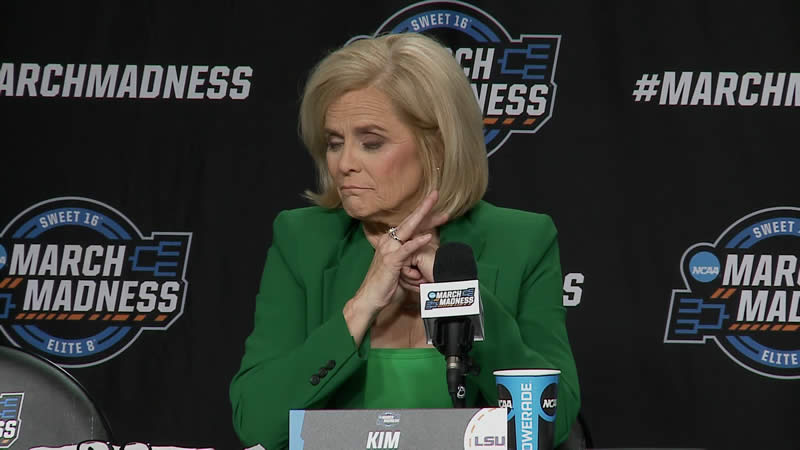The absence of LSU players from the court during the national anthem at their Elite Eight game against Iowa has sparked a significant controversy, reaching the highest levels of Louisiana politics. Governor Jeff Landry has publicly called for the Louisiana Board of Regents to implement a policy requiring student-athletes to attend the national anthem ceremonies before games, linking compliance with the retention of their scholarships.
This call to action came after conservative commentators criticized the LSU team for not being present during the anthem, ahead of their 94-87 defeat to Iowa in Albany, New York. However, LSU’s head coach, Kim Mulkey, clarified that the team’s absence was not a form of protest but rather a continuation of their standard pregame routine, a common practice in college athletics not related to the national anthem protests initiated by Colin Kaepernick.
Governor Landry’s proposal has been met with skepticism and confusion by LSU officials and higher education leaders in Louisiana. Jimmy Clarke, chair of the University of Louisiana System Board of Supervisors, expressed concerns about the practicality of enforcing such a mandate. Simultaneously, Kim Hunter Reed, the state’s commissioner of higher education, highlighted the Board of Regents’ lack of jurisdiction over scholarship decisions.
LSU responded by emphasizing that it has been a longstanding tradition for both their men’s and women’s basketball teams to remain in the locker room during the national anthem, focusing on game preparations. This practice was previously scrutinized when Louisiana legislators threatened LSU’s funding over players kneeling during the anthem, a movement inspired by Kaepernick’s protest against racial injustice. Then-LSU president F. King Alexander defended the team’s tradition, emphasizing their usual absence from the anthem ceremony.
The debate over the national anthem’s role in sports and the expectations placed on student-athletes continues to be a divisive issue, with this latest incident at LSU highlighting the complexities and varying perspectives surrounding patriotism and sportsmanship in collegiate athletics.


